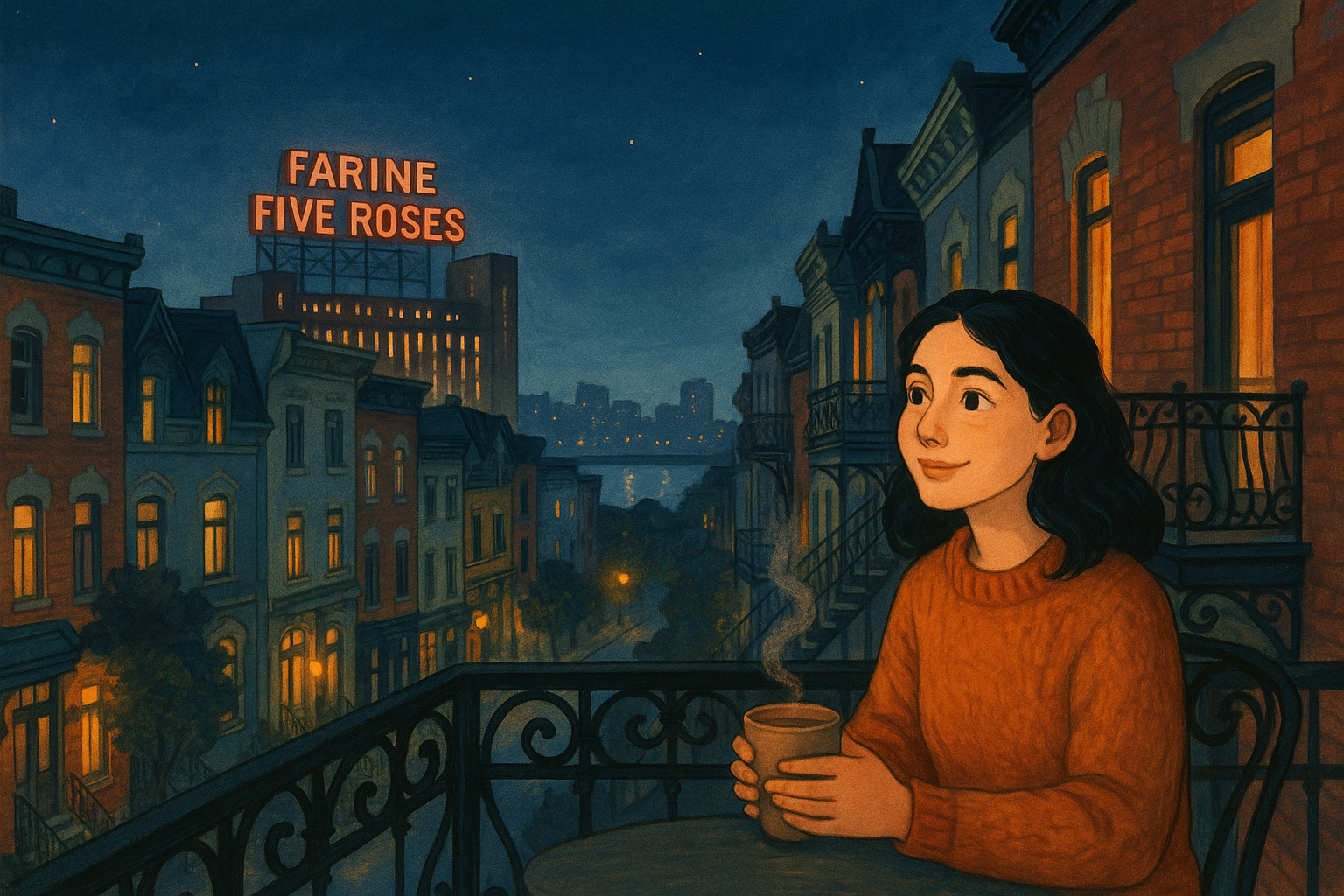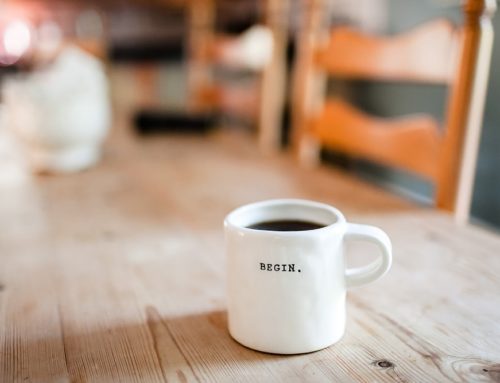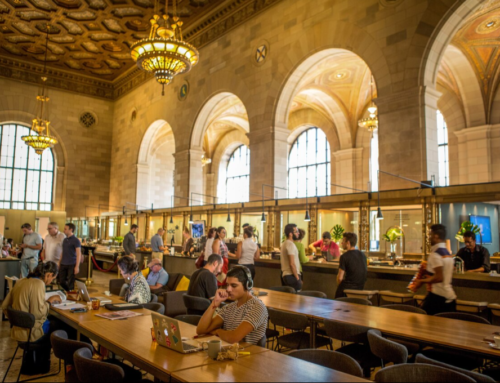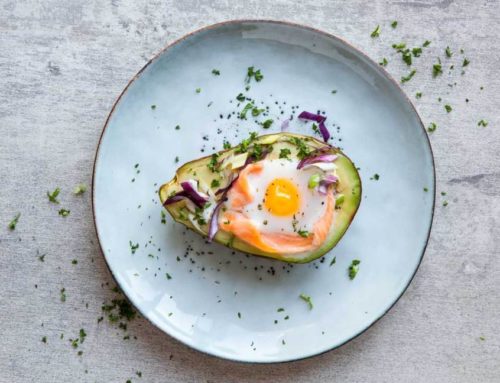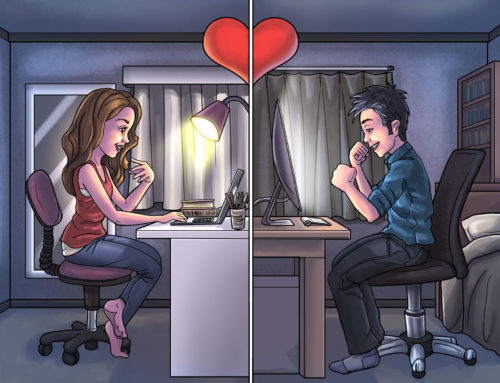Author’s Note: While the characters and their love story are fictional, this story was inspired by the real events that happened to me on Plateau Mont Royal in 2025. The healing power of sound therapy and the innovative work being done by apps like BetterSleep to make ancient wellness practices accessible to modern lives is very real. Sometimes the most profound healing happens not in dramatic moments, but in the quiet spaces between heartbeats, in the gentle frequencies that remind us we are not alone. Enjoy the story.
I’m lying here at 2:47 AM, staring at the water stain on my ceiling that looks like a broken heart, and I can’t help but think that’s exactly what I am right now. Broken. The crooked floors of my Plateau-Mont-Royal apartement creak every time I shift in bed, like they’re judging me for being awake again.
Three months. That’s how long it’s been since Marcus walked out of this apartment, out of my life, taking his stupid expensive coffee maker and leaving behind nothing but sleepless nights and the lingering scent of Portuguese chicken from the restaurant downstairs that now makes me nauseous instead of hungry.
The wrought-iron balconies outside my window cast shadows that dance across the colorful facades of Rue Saint-Laurent, and I wonder if other people in this neighborhood lie awake wondering where their lives went wrong. The distant hum of the restaurant mingles with the sound of raccoons conducting their nightly raid on the recycling bins, and honestly? I relate to those raccoons. We’re all just trying to find something useful in the garbage of our lives.
I pull my grandmother’s Hudson’s Bay Point Blanket closer around my shoulders—the only thing of value I inherited when Grand-mère passed last year, besides her Westmount apartment that I had to sell to pay for this bohemian corner of Montreal where I pretend to be a successful freelance journalist.
The 55 bus rumbles past, carrying people who probably have their shit together, unlike me. I grab my phone from the nightstand, squinting at the blue light that’s probably making my insomnia worse, but I don’t care anymore. I’ve tried everything: meditation apps, sleeping pills that leave me groggy, even counting sheep in both French and English because this is Montreal and I’m bilingual in my insomnia.
That’s when I hear it.
A sound so beautiful it makes my chest ache in a way that has nothing to do with heartbreak and everything to do with something I can’t name. It’s coming from the triplex next door, floating through the thin walls that separate my mess of a life from whatever magic is happening over there.
I press my ear against the wall like some creepy neighbor, but I don’t care. The sound is low and resonant, like someone humming but deeper, more intentional. It wraps around me like the warmest hug I’ve had in months, and for the first time since Marcus left, I feel my shoulders relax.
Without thinking, I get up and move to my window. Through the gap between our buildings, I can see into the apartment next door. There’s a woman sitting cross-legged on the floor, surrounded by what looks like an orchestra of bowls, each one singing at a different frequency as she moves a wooden mallet around their rims.
She’s beautiful in that effortless Montreal way—dark hair falling in waves around her face, wearing an oversized sweater that probably costs more than my rent, but somehow she makes it look like she just threw it on. There’s something about the way she moves, so deliberate and peaceful, that makes me want to cry.
The sound continues, and I find myself breathing deeper for the first time in months. The anxious chatter in my mind—the endless loop of “why wasn’t I enough for Marcus” and “how am I going to pay rent next month” and “what the hell am I doing with my life”—begins to quiet.
I watch this mystery woman work with her singing bowls, and something stirs in my memory. Grand-mère used to hum while she cooked, not popular songs but something older, something that seemed to come from deep in her chest and resonate through her tiny Westmount kitchen. “C’est la sonothérapie,” she would say when I asked about it. Sound medicine.
As the bowls continue their ethereal conversation, I find myself drifting toward sleep for the first time in weeks. The last thing I remember is thinking that maybe, just maybe, there’s still magic in this world. Even for broken-hearted insomniacs living in crooked-floored apartments.
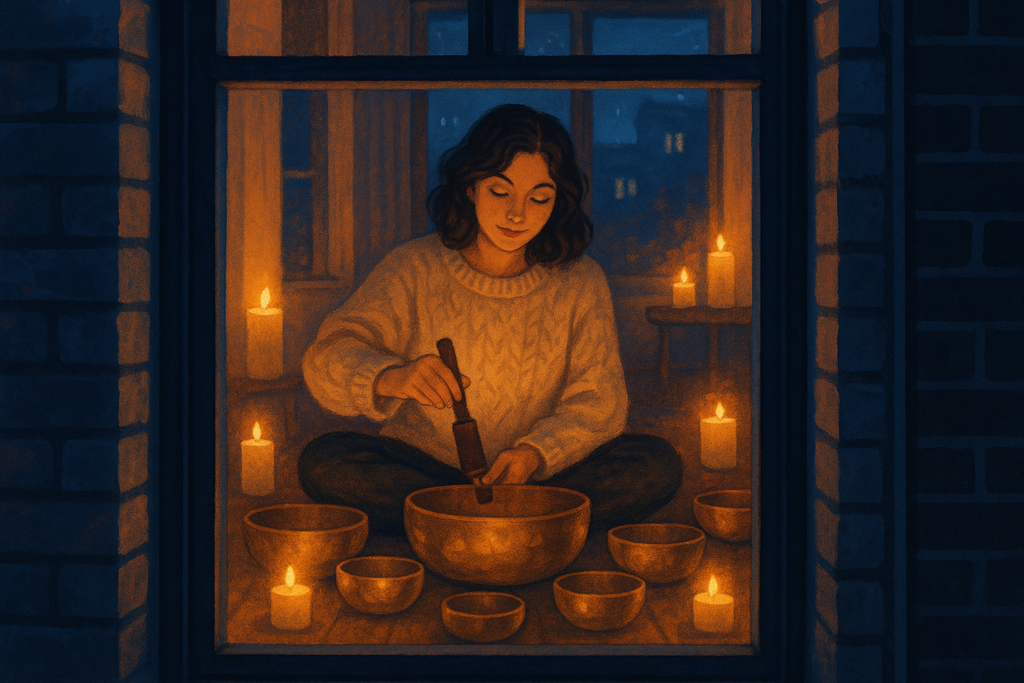
The Woman with the Singing Bowls
I wake to the scent of fresh bagels from drifting through my window, and for a moment, I forget that my life is a disaster. The sun is streaming through my windows, and I’ve actually slept through the night. No 3 AM panic attacks about my dwindling bank account, no tossing and turning while replaying every fight Marcus and I ever had.
The sound of the singing bowls has been replaced by the familiar morning symphony of the Plateau: the espresso machine at the café downstairs, delivery trucks navigating narrow streets, the gentle chaos of a neighborhood waking up. But something has shifted. The sounds that usually make me want to crawl back under my covers—the construction noise from another heritage building being converted into luxury condos that I’ll never be able to afford—seem somehow more manageable today.
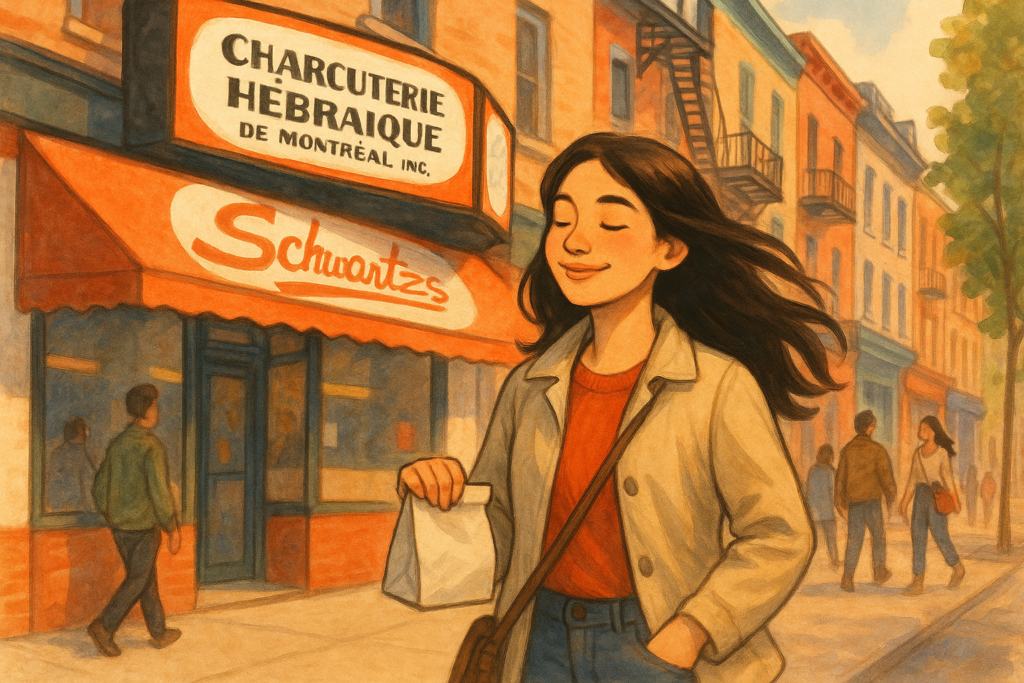
I’m making coffee in my tiny kitchen when there’s a knock at my door. My heart does this stupid flutter thing because for a split second I think it might be Marcus, coming back to tell me he made a mistake. But when I open the door, it’s her. The woman with the singing bowls.
She’s even more beautiful up close, with these warm brown eyes that seem to see right through all my carefully constructed walls. She’s holding a small ceramic bowl and wearing the kind of easy smile that suggests she’s used to having conversations that most people would find weird.
“Bonjour,” she says, switching between French and English in that distinctly Montreal way that always makes me feel like I belong somewhere. “I hope I didn’t disturb you last night. I saw your light on and thought… well, I thought you might be having trouble sleeping.”
I want to lie, to pretend I have my life together, but there’s something about her that makes honesty feel safe. “Actually, it was the opposite. I slept better than I have in months. What were those sounds?”
She smiles, and it’s like sunshine breaking through clouds. “I’m Margot. And those were Tibetan singing bowls. I’m a sound therapist—I work with people who have sleep disorders, anxiety, chronic pain.”
I invite her in, suddenly self-conscious about my messy apartment, the stack of unpaid bills on my counter, the empty wine bottles I haven’t bothered to recycle. But Margot settles onto my couch like she belongs here, cradling that bowl in her hands like it’s precious.
“I moved here three years ago from Quebec City,” she tells me. “I was going through my own dark period—divorce, career change, the whole quarter-life crisis package. The Plateau saved me, honestly. There’s something about this neighborhood that accepts broken people and helps them heal.”
The way she says “broken people” makes my chest tight, because that’s exactly what I am. Broken. But when she says it, it doesn’t sound like a death sentence. It sounds like a starting point.
“My grand-mère used to sing,” I tell her, surprising myself with the admission. “She said it was sound medicine.”
Margot’s eyes light up like I’ve just revealed the secret to the universe. “Your grandmother understood something we’ve forgotten. Sound is our oldest medicine. Before pharmaceuticals, before therapy, before everything else, humans used sound to heal.”
She explains her work, how she combines ancient practices with modern understanding of neuroscience. “The brain responds to specific frequencies. Certain sounds can trigger the release of melatonin, reduce cortisol levels, help synchronize brainwaves. It’s not magic—it’s science.”
I think about my months of insomnia, the sleeping pills that made me feel like a zombie, dating apps that somehow made me more anxious. “Why don’t more people know about this?”
Margot’s expression grows sad, and I want to reach out and smooth the worry lines from her forehead. “We live in a culture that’s forgotten how to listen. We’ve created cities full of noise pollution, we’ve medicalized everything without addressing root causes, and we’ve lost touch with the healing power of natural sound.”
She gestures toward my window, where the sounds of the Plateau continue their morning dance. “Even here, in this beautiful neighborhood, we’re surrounded by acoustic chaos. Our nervous systems are in constant fight-or-flight mode.”
“But last night,” I say, “your bowls somehow cut through all that.”
“Sound can retrain the nervous system,” she explains, and the way she talks about it, with such passion and knowledge, makes me want to learn everything she knows. “The frequencies I was working with are specifically chosen to promote deep sleep and nervous system regulation.”
As we talk, I realize I’m experiencing something I haven’t felt since before Marcus left: genuine curiosity instead of anxiety. The journalist in me is waking up, but it’s more than that. It’s like Margot is showing me a door I didn’t know existed.
“Would you…” I start, then stop, suddenly nervous. “Would you be willing to teach me? About sound therapy?”
Margot studies my face for a long moment, and I feel like she’s seeing all my broken pieces and somehow finding them beautiful. “There’s something I want to show you first,” she says, pulling out her phone. “Have you ever heard of sleep apps?”
I shake my head, and she opens an app that looks like nothing I’ve ever seen before. The interface is elegant, calming, with soft colors that don’t assault your eyes like most apps do.
“It’s a sleep app, but not like the others,” she explains, her fingers moving across the screen with practiced ease. “It has this incredible sound mixer feature. You can blend different frequencies, nature sounds, even singing bowls like the ones I use.”
She shows me how it works, and I’m mesmerized. There are hundreds of sounds—rain on leaves, ocean waves, Tibetan bowls, crystal chimes, even something called “brown noise” that sounds like the most comforting hug in audio form.
“The beautiful thing about this app,” Margot continues, “is that it democratizes sound healing. Not everyone can afford private sessions or expensive equipment, but anyone with a phone can access these healing frequencies.”
She creates a custom mix for me right there on my couch, blending gentle rain sounds with soft singing bowls and something called “delta waves” that she says will help promote deep sleep. As the sounds fill my small apartment, I feel that same sense of peace I experienced last night.
“Try this tonight,” she says, handing me her phone so I can download the app. “But more than that, start paying attention to how different sounds affect you. Notice what makes you feel calm, what makes you anxious. Become curious about your own acoustic needs.”
After she leaves, I sit on my couch with the app open, exploring all the different sound combinations. For the first time in months, I’m excited about bedtime. Not because I’m exhausted, but because I have something to look forward to.
That night, I created my own mix using BetterSleep’s sound mixer—a blend of ocean waves, singing bowls, and something called “pink noise” that Margot recommended. As I settle into bed with my grandmother’s blanket, I put on my headphones and let the sounds wash over me.
The effect is immediate. My racing thoughts slow down, my breathing deepens, and for the first time since Marcus left, I don’t feel alone. The sounds create a cocoon of safety around me, and I drift off to sleep thinking that maybe healing isn’t about fixing what’s broken. Maybe it’s about learning to find peace within the chaos.
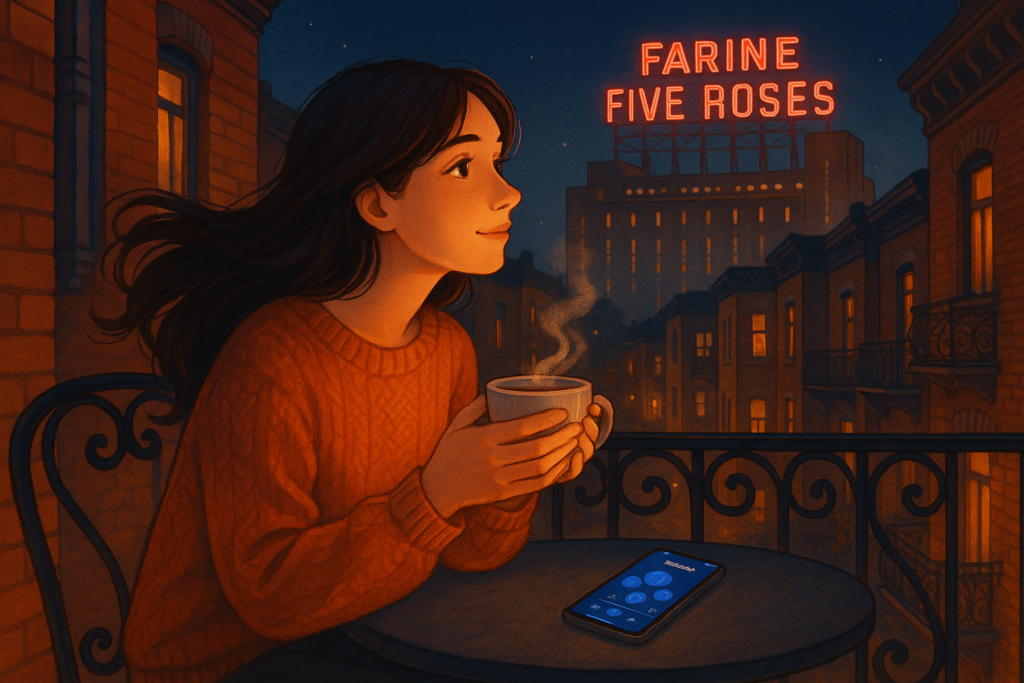
The Sound of Healing
Two weeks later, I’m a different person. Not completely healed—I’m not naive enough to think an app can fix a broken heart—but different. Stronger, maybe. Or at least better rested.
The sleep app has become my nightly ritual. I’ve experimented with different combinations, learning that I respond best to a mix of rain sounds and singing bowls with just a touch of brown noise underneath. The app tracks my sleep patterns, and I can see the improvement in black and white: longer deep sleep phases, fewer nighttime awakenings, better overall sleep quality.
But it’s more than just the data. It’s the way I feel when I wake up—like I can handle whatever the day throws at me. It’s the way my anxiety has softened around the edges, how I no longer spiral into panic when I think about my uncertain future.
I’m at Marché Jean-Talon, picking up herbs for evening tea—another new ritual I’ve adopted—when I see him. Marcus. He’s with her, the woman he left me for, and they’re laughing at something on his phone. She’s everything I’m not: tall, blonde, probably has a trust fund and a stable career.
Six weeks ago, seeing them together would have sent me into a tailspin. I would have hidden behind the herb stand, gone home, and cried into a bottle of wine while listening to sad songs and wondering what was wrong with me.
But today, something different happens. I feel the familiar pang of hurt, but underneath it is something new: a sense of my own worth that has nothing to do with whether Marcus chose me or not.
I walk right past them, my head held high, and I swear I see surprise flicker across Marcus’s face. Good. Let him wonder what changed.
That evening, I’m settling into my nightly routine with when my phone buzzes with a text from an unknown number.
“Hi, it’s Margot. I hope you don’t mind—I got your number from the building directory. I wanted to check how you’re doing with the sound therapy.”
My heart does that flutter thing again, but this time it’s not about Marcus. It’s about the woman who introduced me to the healing power of sound, who showed me that broken doesn’t mean worthless.
“It’s been life-changing,” I text back. “I’m sleeping better than I have in years. Thank you.”
Her response comes quickly: “I’m so glad. Would you like to grab coffee tomorrow? I have something I want to discuss with you.”
I stare at the message for a long moment, my thumb hovering over the keyboard. There’s something about the way she phrases it that makes my stomach flutter with nervous excitement.
“I’d love to,” I reply.
The next morning, I meet Margot at Café Olimpico, a tiny café tucked away on a side street in Mile End. She’s already there when I arrive, sitting at a corner table with two steaming cups and that same warm smile that makes me feel like everything might actually be okay.
“You look different,” she says as I sit down. “Rested.”
“I feel different,” I admit. “The app has been incredible. I had no idea how much my sleep was affecting everything else in my life.”
Margot nods, wrapping her hands around her coffee cup. “Sleep is the foundation of everything—emotional regulation, cognitive function, physical health. When we’re sleep-deprived, we’re operating from a place of survival rather than thriving.”
She pauses, studying my face with those warm brown eyes. “I have a proposition for you. I’ve been thinking about writing a book about sound therapy, about how ancient healing practices can be integrated with modern technology. But I’m a therapist, not a writer. You’re a journalist. What if we collaborated?”
My heart stops. Actually stops. “You want to write a book with me?”
“I want to write a book with you,” she confirms, and the way she says it makes me think she might mean more than just professional collaboration. “Your story—how you discovered sound healing, changed your relationship with sleep—it could help so many people.”
I think about all the sleepless nights, all the anxiety and heartbreak and feeling like I was drowning in my own life. And then I think about how I feel now: grounded, hopeful, like I’m finally becoming the person I was meant to be.
“Yes,” I say, and the word comes out stronger than I expected. “Yes, I want to do this with you.”
Margot’s smile could power the entire Plateau. “There’s something else,” she says, reaching across the table to touch my hand. The contact sends electricity up my arm. “I know you’re still healing from your breakup, and I don’t want to complicate things, but I need you to know that this isn’t just about the book for me.”
My breath catches. “What do you mean?”
“I mean that watching you discover your own strength these past few weeks has been the most beautiful thing I’ve ever witnessed. I mean that I think about you every night when I’m practicing with my singing bowls. I mean that I’m falling for you, and I hope that’s okay.”
The café around us fades away. The sounds of the Plateau—the traffic, the conversations in rapid-fire French, the espresso machine—all become background music to this moment.
“It’s more than okay,” I whisper, and when she leans to kiss me, it tastes like coffee and possibility and the kind of healing I never knew was possible.
Chapter Four: The Sound of Love
Six months later, I’m lying in Margot’s bed in her sound-filled apartment, listening to her practice with her singing bowls in the next room. The sounds drift through the walls like a lullaby, and I think about how much my life has changed since that first sleepless night when I heard her music.
Our book proposal was sent to a major publisher. “Sound Sleep: Ancient Wisdom for Modern Rest”, combining my storytelling with Margot’s expertise and featuring a whole chapter on how apps are making sound therapy accessible to everyone.
But more than that, I’ve found something I didn’t even know I was looking for: a love that heals instead of hurts, a partnership that makes me stronger instead of smaller, a future that feels bright instead of uncertain.
My phone buzzes with a notification —my sleep score from last night was 94%, the highest it’s ever been. I smile, remembering how desperate I was just months ago, how broken I felt, how impossible healing seemed.
Margot appears in the doorway, backlit by the soft light from her practice room, and my heart still does that flutter thing when I see her. I don’t think it will ever stop.
“How did you sleep?” she asks, settling beside me on the bed.
“Like a baby,” I say, showing her my sleep score. “I think I’m officially a sound therapy success story.”
She laughs, that beautiful sound that’s become my favorite frequency. “You were always a success story. You just needed the right tools to remember it.”
I think about Marcus sometimes, wonder if he’s happy with his blonde girlfriend, if he ever thinks about what we had. But mostly, I’m grateful. Grateful that he left, grateful that I was broken enough to be open to healing, grateful that sometimes the worst thing that happens to you leads to the best thing.
“I love you,” I tell Margot, words that come easier now, words that don’t feel scary anymore.
“I love you too,” she says, and then she’s kissing me, and the singing bowls in the next room seem to hum in harmony with my heartbeat.
Later, as we’re getting ready for the day, Margot shows me a message from a reader who found our blog about sound therapy.
“I’ve been struggling with insomnia for years,” the message reads. “After reading your story and downloading the app, I’ve had the best sleep of my life. Thank you for showing me that healing is possible.”
I feel tears prick my eyes, the good kind this time. “We’re actually helping people.”
“We’re helping people help themselves,” Margot corrects. “That’s the most beautiful kind of healing.”
As we walk through the Plateau together, past the colorful facades and ornate balconies, past the Portuguese chicken restaurant and the 24-hour dépanneur, I think about how this neighborhood has become the soundtrack to my healing. The sounds that once kept me awake—the traffic, the construction, the general chaos of urban life—have become part of my story, part of the symphony that led me to Margot and to myself.
My phone buzzes with another BetterSleep notification, reminding me to set my sleep intention for tonight. I smile, thinking about how I’ll create a new sound mix, maybe something with ocean waves and crystal bowls, something that will carry me into dreams filled with possibility.
Because that’s what I’ve learned: healing isn’t about silence. It’s about finding the right sounds, the ones that resonate with your soul and remind you that you’re not broken—you’re just learning to sing in a different key.
And sometimes, if you’re really lucky, you find someone who wants to make music with you for the rest of your life.
Epilogue: One Year Later
I’m standing on the terrasse of our new apartment—yes, our apartment, because Margot and I decided to find a place together, one with better heating and floors that don’t creak quite so much—watching the sunset over Mount Royal. The sounds of the city drift up to us: children playing in the park below, the distant hum of traffic, the evening chorus of birds settling in for the night.
Our book comes out next month, and we’ve already been invited to speak at conferences about the intersection of ancient healing practices and modern technology.
But tonight, none of that matters. Tonight, it’s just us and the sounds of Montreal and the quiet miracle of two people who found each other in the darkness and chose to create light together.
Margot comes up behind me, wrapping her arms around my waist, and I lean back into her warmth.
“What are you thinking about?” she asks.
“Just… all of it. How different everything is now.”
“Better different?”
“The best different,” I say, turning in her arms to face her. “I never thought I’d be grateful for insomnia, but if it hadn’t kept me awake that night, I never would have heard your singing bowls. I never would have found you.”
She smiles, that same warm smile that made me feel safe from the very beginning. “Maybe the universe knew we needed each other.”
“Maybe it did.”
As the sun sets over Montreal, painting the sky in shades of pink and gold, I think about all the people out there who are lying awake right now, struggling with their own darkness, their own broken hearts, their own sleepless nights. I think about how sound can heal, how technology can connect us to ancient wisdom, how sometimes the thing that saves you comes in the form of an app on your phone and a woman with singing bowls who teaches you that broken doesn’t mean worthless.
My phone buzzes with my nightly sleep reminder, and I smile. Tonight, I’ll create a new mix—maybe something with rain and singing bowls and the sound of Margot’s breathing beside me. Because that’s what healing sounds like: not silence, but harmony. Not the absence of noise, but the presence of the right kind of music.
And as we head inside to begin our evening ritual, I know that whatever dreams come tonight, they’ll be filled with the sound of love, the frequency of hope, and the gentle rhythm of a life finally in tune with itself.
The End
